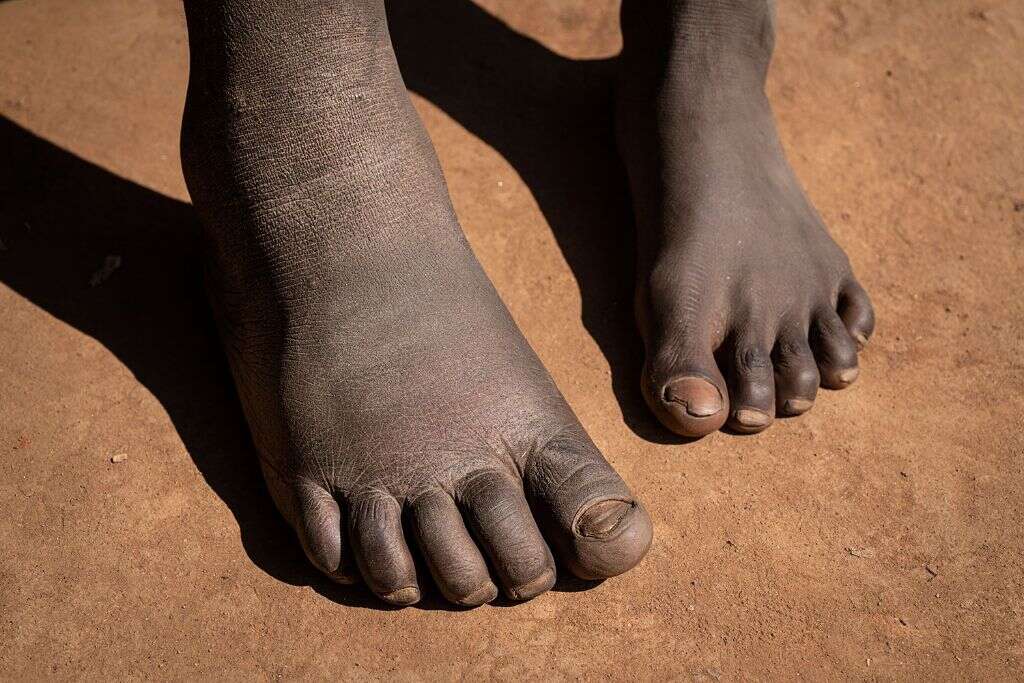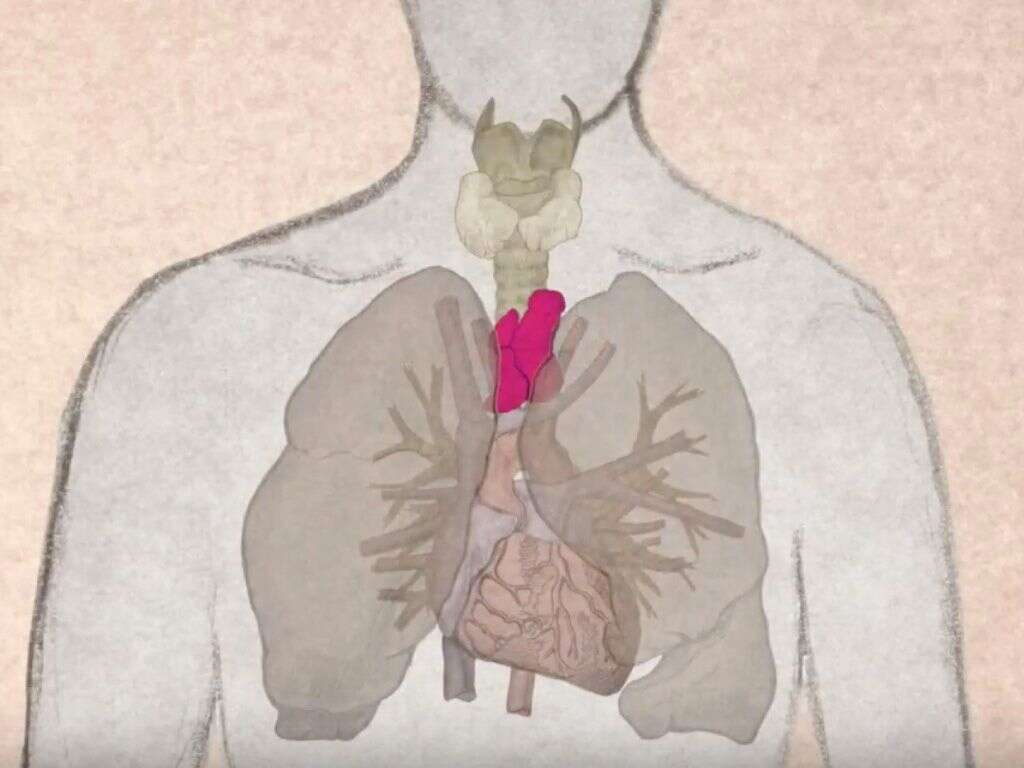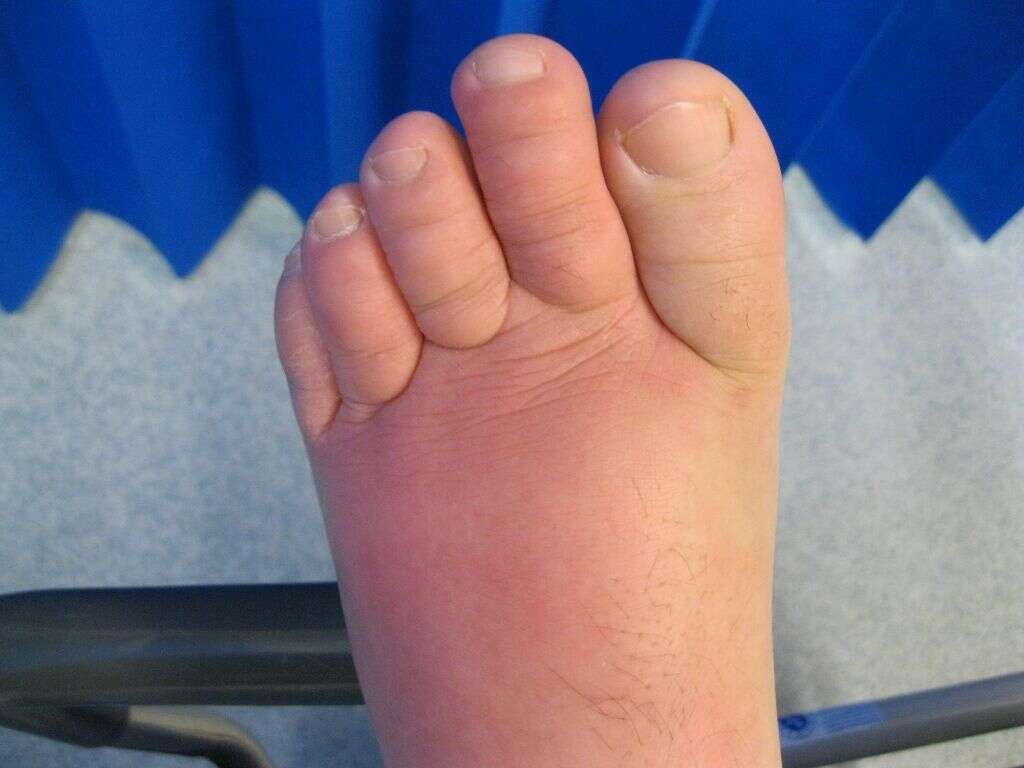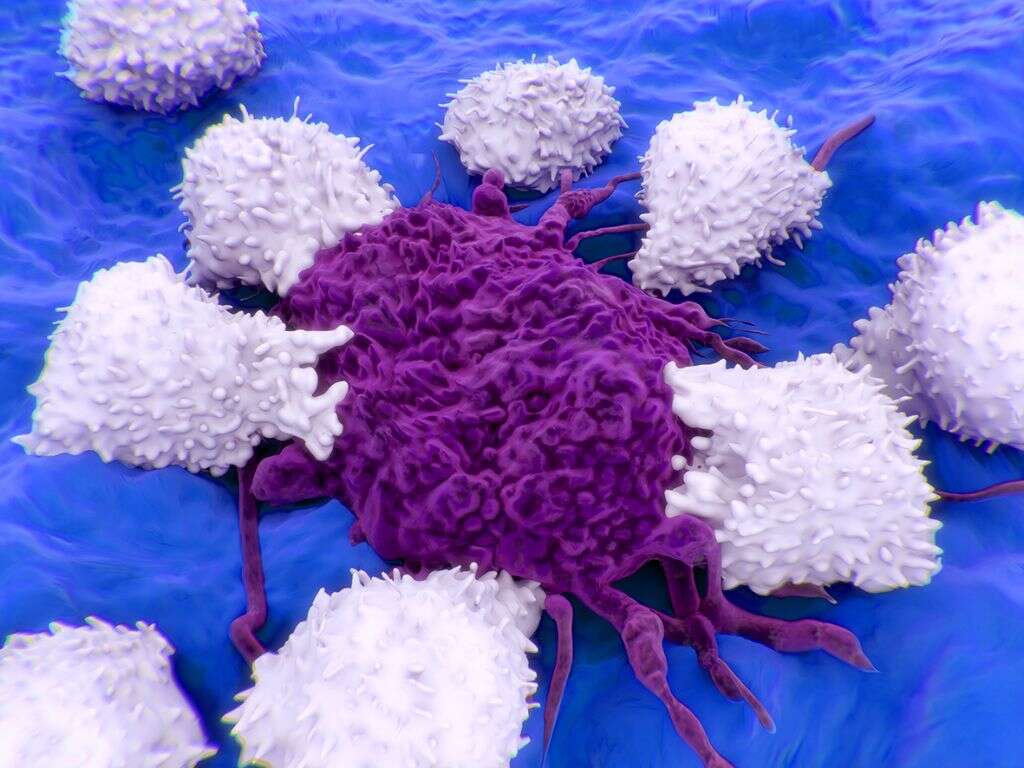What Is Elephantiasis?
Elephantiasis is not a word, or a disease, that most people encounter on a regular basis. It’s not a condition that doctors see often, either. While there are many causes and various symptoms of elephantiasis, it is basically a swelling and hardening of body parts due to a dysfunction in the body’s lymphatic system.
This rare disease can be triggered by parasitic infection, bacterial infection, and even genetic disorders. Read on to discover who can get elephantiasis, how it’s treated, and whether you need to be concerned about picking it up on your next trip abroad.
1. What Are the Causes of Elephantiasis?
Individuals who live in underdeveloped areas of the world, such as South America, Central Africa, and certain Caribbean islands are at risk of being infected with tiny roundworms by way of a mosquito bite. These worms block the flow of lymph and make it difficult for the lymphatic system to filter out microorganisms and toxins. Leishmaniasis, another infectious disease caused by a parasite, can trigger the condition as well.
Other conditions that can cause elephantiasis-like symptoms include Proteus syndrome, which is a genetic condition that leads to a large head; lymph node lesions; and overgrowth of various parts of the body. Birth defects and even strep infection can play a part in some patients’ elephantiasis diagnosis as well.
2. What Are the Symptoms of Elephantiasis?
The trademark swelling and bulky stiffness in limbs, breasts, and private parts are an initial giveaway of the condition. In addition to these symptoms, you may feel like you have the flu with aches, chills, and fever.
If your elephantiasis is not treated right away, your limbs could keep swelling. You will likely find it difficult to walk normally as the condition worsens, and you may suffer from anxiety or depression if you feel that others are staring at you or judging you for your condition.

3. How Is Elephantiasis Diagnosed?
Your doctor will examine you and ask about your medical history: Have you lived abroad in the past year? Have you traveled recently? If you have genital elephantiasis, your doctor will ask if your sexual partners have either traveled to high-risk places or have shown evidence of the disease themselves.
After examining you, your doctor will probably send you to the lab for blood work. If your elephantiasis is found to be caused by a parasite, you will be given medication to treat the condition right away.
4. What Is the Treatment for Elephantiasis?
Your doctor might ask you to take both diethylcarbamazine and ivermectin to kill off the parasites causing your swelling. The silver lining here is that you may only have to take these meds once a year.
Depending on the cause of elephantiasis, you will likely work with a general practitioner, an infectious disease specialist, or an oncologist. It’s best to speak with your doctor before trying any over-the-counter remedies for your condition.

5. If I Am Being Treated for Elephantiasis, How Can I Heal Faster?
There are several steps you can take at home to speed up your healing time and decrease the inevitable discomfort that comes with the disease. Above all, you should make sure the swollen areas stay clean and dry as sore spots, wounds, and fungal infections can easily become a problem.
Have you ever sprained an ankle and watched it puff up like a balloon? Your doctor probably told you to elevate it to decrease the swelling. You can do the same thing to help elephantiasis. You’ll also want to get gentle exercise and walk when you can.
6. Is Elephantiasis Contagious?
Not usually. If someone you know has it and you live in — or have traveled to — a similar area, it’s possible that you were both exposed to a parasite that could have caused elephantiasis. Make sure to communicate with your travel partners if this is the case.
Strangely enough, elephantiasis can be sexually transmitted. Lymphogranuloma venereum bacteria can pass from person to person during sexual intercourse and damage the lymphatic system in both people. If neither person treats their infection, elephantiasis can be the result for both unfortunate parties.

7. How Can I Help Someone With Elephantiasis?
The most important thing to remember if you know someone with elephantiasis is to treat him or her with empathy and compassion. The abnormal swelling and huge limbs may look funny, but imagine how you would feel if you had this condition: You’d probably attract unwanted stares from simply venturing out of your house or to the grocery store.
Try to help this person remember to attend doctors’ appointments and to take any prescribed medication. They may need help going up and down the stairs and completing daily tasks, like cooking or cleaning.
8. Do Patients With Elephantiasis Die?
Sometimes. If you’ve been infected with a parasite, this can certainly cause a shorter life expectancy as your immune system may not be able to handle the overload. Without medication, these infections can result in amputation of the affected limbs or even death.
If you have a condition like hereditary lymphedema, your doctor will probably not call this true elephantiasis — though, on the surface, it will look similar. It is important to follow up with a specialist regardless of the cause of limb swelling.

9. Did the “Elephant Man” Have Elephantiasis?
The Elephant Man, whose real name was Joseph Merrick, had Proteus Syndrome. He was born healthy, but he later developed the characteristic thick, rough skin of what doctors thought was elephantiasis. As he lived in the late 19th century, there was no way to do X-rays or genetic testing.
Joseph Merrick was not correctly diagnosed with it until 1996 when a radiologist was able to examine scans of his skeleton. Though he was misdiagnosed and mistreated for most of his life, Merrick’s life was the inspiration of the 1980 movie “The Elephant Man”, and his condition sparked numerous discussions about the inhumane treatment of people with obvious deformities and disabilities.
10. Do I Need To Be Worried about Elephantiasis If I Travel?
Maybe. The majority of patients with elephantiasis caused by an infection got it when they traveled to tropical areas. Remember, individuals affected with lymphatic filariasis have been infected with a species of worm common to warmer, underdeveloped areas of the world.
If you’re traveling to New York City, you can pack up and leave without thinking twice about elephantiasis. If you go on a mission trip to Haiti and you notice strangely swollen body parts upon your return, well, then maybe it’s time to call your doctor. On the whole, though, you don’t have much to worry about.











